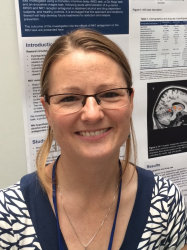BibTex format
@article{Paterson:2015:10.1177/0269881115596155,
author = {Paterson, LM and Flechais, RSA and Murphy, A and Reed, LJ and Abbott, S and Boyapati, V and Elliott, R and Erritzoe, D and Ersche, KD and Faluyi, Y and Faravelli, L and Fernandez-Egea, E and Kalk, NJ and Kuchibatla, SS and McGonigle, J and Metastasio, A and Mick, I and Nestor, L and Orban, C and Passetti, F and Rabiner, EA and Smith, DG and Suckling, J and Tait, R and Taylor, EM and Waldman, AD and Robbins, TW and Deakin, JFW and Nutt, DJ and Lingford-Hughes, AR},
doi = {10.1177/0269881115596155},
journal = {Journal of Psychopharmacology},
pages = {943--960},
title = {The Imperial College Cambridge Manchester (ICCAM) platform study: an experimental medicine platform for evaluating new drugs for relapse prevention in addiction. Part A: study description},
url = {http://dx.doi.org/10.1177/0269881115596155},
volume = {29},
year = {2015}
}

